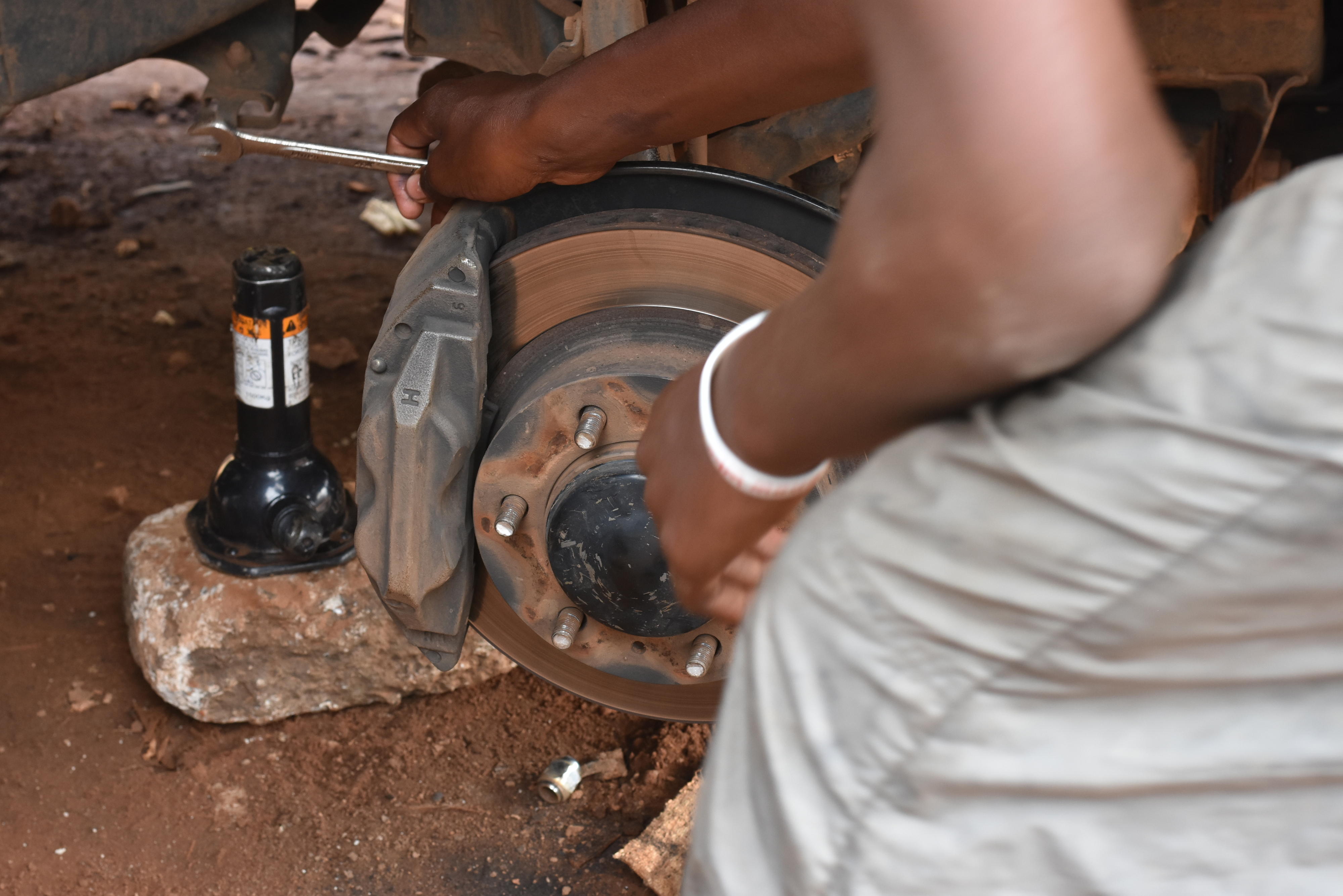Those annoying squealing brakes

Noisy brakes should always be inspected to make sure there is no problem with the braking system. PHOTO | PROMISE TWINAMUKYE
What you need to know:
- Your vehicle’s brakes are one of its most important safety features. And so when you become uncomfortable with the time they take to slow down, or make that annoying sound when you step on the brake pad, you need to have them replaced.
When a brake pad wears down on a rotor, it will often make a squealing sound when applied. This is an audible safety measure to make sure that the driver knows to change the brakes soon.
Unfortunately, some pads do not do this particularly well, so newer cars have brake pad wear sensors installed as part of their system, alerting the driver on the dash that the pads need replacement.
In addition, when a brake pad gets low, it will require a longer stroke of the calliper’s piston to clamp down on the rotor, therefore lowering the amount of fluid in your brake reservoir.
Change in brake fluid levels
If the pads are low, you will be able to see a noticeable change in your brake fluid’s level and may even get a ‘BRAKE’ warning light on the instrument cluster.
If all these signs are ignored, the pad’s material will wear down to the point where the only thing making contact with the rotor surface is the pad’s metal backing plate, which is made of steel, and it will make heavy grooves in your rotor’s surface, forcing you to replace the rotors as well.
Of all the car problems that can occur, stopping the car correctly is the most important to everyone’s safety. Noise from our brakes is a warning that every driver should pay attention to.
When you need an overhaul
It may be minor, but it could indicate serious safety problems. You have probably heard cars passing by with unwanted squeals from the brakes. This type of noise can be found on many of the cars driven on the roads today and drivers spend a lot of time and money trying to correct it.
Sometimes a complete brake overhaul is done to try to correct the problem.
This typically involves replacing the brake pads on disc brakes, and the brake shoes on drum type brakes.
The friction surfaces of the metal brake drums and rotors (the shiny part held tightly by the brake pads) are also often machined to provide a flat, smooth surface for the brake friction material to push against.
While the brakes may work well, sometimes the squeal comes back shortly thereafter.
Technically this noise is caused by the brake pads vibrating at a very high frequency in their fixtures as the rotor slides past.
I cannot say why this noise is so annoying. It just is. Many people cannot stand it, even if it is ‘normal’ for many cars today.
Most people want nice, quiet brakes that stop smoothly with a reassuring “shhhhh” sound.
The squeal will usually be there when pulling away from a stop, and when pressing on the brake pedal lightly. The noise should stop when stopping the car quickly with hard braking. If the noise is loud, steady, and there all the time the car is driving, there is a problem with the brakes.
It may be a stone trapped in the brake mechanism, a stuck or worn brake calliper, missing or broken anti-rattle clips, dusty drums or some brakes having a metal wear indicator that touches the rotor and squeals to tell you the brake pads are worn out.
Cars with a constant noise should be checked as soon as possible.
Pads material
Donald Lule a mechanic from Nakawa Vocational Training Institute says in the past, the brake pad material was made of asbestos.
It stopped well and was quiet, but the dust generated was extremely bad for the lungs. Today, the material can be classified as organic, or metallic.
Brake pads made with organic materials tend to be quiet but wear out faster.
The metallic material will give better brake performance under severe and repeated braking and can last longer however, makes more noise such as squeals and squeaks.
Manufacturers will use both types of materials on their cars depending on the intended or suggested use for the car.
Original brake pad materials are chosen carefully by the manufacturer to reduce noises and increase durability. They are often more expensive than the aftermarket ones which, may stop just as well as the original but sometimes cause noises because they may not be optimally matched to the material of the rotors.
Stopping all brakes squeals is almost impossible, and most manufacturers state that some brake squeak is normal.
Reduce squealing chances
While brake pads are the number one cause of the noise, other reasons such as loose parts including the callipers and other brake components might be the perpetrators.
What can you do as a driver to reduce the chance of squealing brakes?
First, noisy brakes should always be inspected to make sure there is no problem with the braking system.
You shall be surprised at just how small the cause is.
If the pads have worn down to the point where metal-to-metal contact is occurring, your car may not be able to stop safely, and you may damage the brake rotors or drums to the point where they must be replaced.
From personal experience, you shall have better luck replacing the brake pads with originals the dealerships rather than using other brands. It is usually more expensive, but the quality is much better.
However, Lule differs and says some aftermarket brakes do the same albeit cheaper, which really is a good thing.




